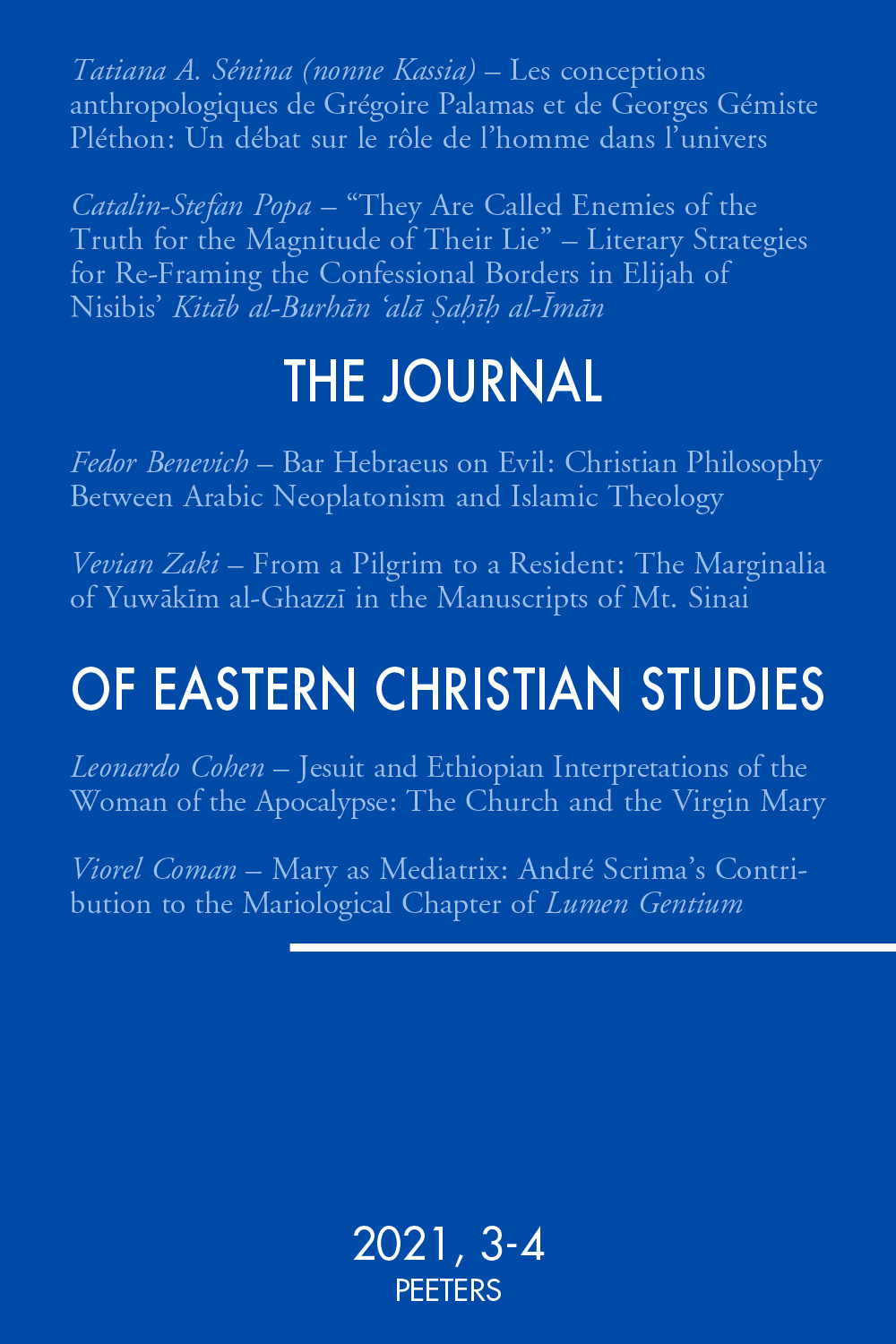 previous article in this issue previous article in this issue | next article in this issue  |

|
Document Details : Title: 'Sophia, die Weisheit Gottes' als Eigenname und Konzept bei Pavel Florenskij Subtitle: Eine zeichenwissenschaftliche Betrachtung Author(s): KANNGIESSER, Brigitte Journal: Journal of Eastern Christian Studies Volume: 59 Issue: 3-4 Date: 2007 Pages: 147-165 DOI: 10.2143/JECS.59.3.2030867 Abstract : In Russian Orthodoxy, ‘Sophia, the Wisdom of God’ has developed into an important object and subject. However, she/it was never a person in an historical sense, but rather a construct. This construct is ambivalent: ‘Sophia, the Wisdom of God’ presents itself on the one hand as Wisdom, on the other hand as person, for instance in iconography. My thesis is the following: In Sophia, concept and face are inseparably linked. Using the example ‘Pis’mo desjatoe: Sofi ja’ from Florenskij’s Stolp i utverzhdenie istiny, I attempt to substantiate this thesis from the point of view of the philosophy of language and, more particularly, a semiotic perspective. The semiotic perspective – that is: examination of how signs work – includes semiotics, intertextuality, and the practice of citation. In addition, I will analyze Florenskij’s treatment of names in Imena. One important question is: in which way does Florenskij quote Wisdom or rather Sophia? His practice of citation and his mode of creating a discourse will be described in a specifi cally semiotic way. Written in the form of ‘intimate letters to a friend’, Stolp i utverzhdenie istiny was criticized ‘for its pretentious aesthetical and lyrical stylization’ by Nikolaj Berdjaev. This allows and requires a semiotic analysis of the text as a literary text, as well, even if in this case it is viewed in a pejorative way. From a perspective of cultural studies, the fi eld of semiotics is promising in the sense of specifying the understanding of a text, which eventually should sharpen a specifi c account of Florenskij’s thought. Florenskij’s remarks on the philosophy of language, especially of the name, and his dealing with the material aspect of signs make a contribution to the Russian cultural discourse – this is possible in a philosophical and/or in a theological way. |
